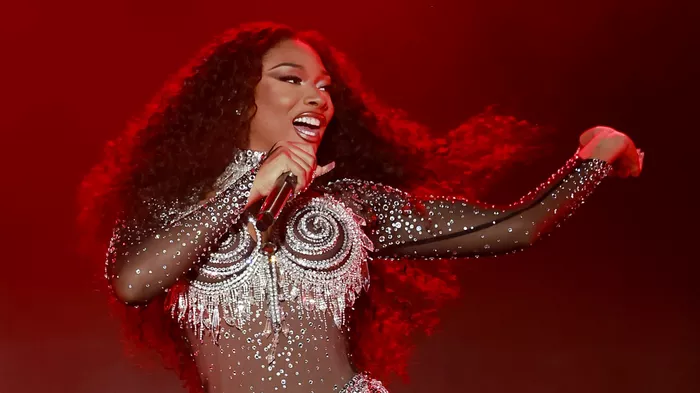As hip-hop commemorates its 50th anniversary, Sidney Madden and Rodney Carmichael, the co-hosts steering the NPR podcast Louder Than A Riot, delve deeply into both its past and its horizon. In this introspective odyssey, they confront the legacy of a genre once dominated by male artists and hyper-masculine lyrics while paving the way for a more encompassing future.
The inaugural season of Louder Than A Riot cast an unflinching spotlight on the intricate relationship between hip-hop and mass incarceration. Now, as the second and final season unfurls, the podcast unearths the persistent misogynoir that has cast a shadow over the genre, while celebrating artists who courageously challenge the status quo. Carmichael emphasizes that while this exploration is “long overdue, it’s also right on schedule.”
Carmichael remarks, “Both season 1 and season 2 were about us tuning into the cultural temperature of the moment. When we observed the unfolding dynamics within hip-hop during that time, it was as if the story, the theme, the essence of the season were handed to us.”
He cites the notable incident of 2020, where rapper Tory Lanez shot Megan Thee Stallion in the feet following a party at Kylie Jenner’s residence. Although Lanez was eventually convicted on three felony charges and sentenced to a decade in prison, Megan encountered disbelief and derision from prominent figures within hip-hop. Carmichael underscores the mockery, harassment, and incredulity she faced.
Inaugurating the second season, the podcast scrutinizes the backlash Megan encountered upon speaking out against her attacker. Subsequent episodes delve into the sidelining of pioneering female rapper Sha-Rock and the pervasive culture of workplace discrimination and sexual harassment within The Source magazine.
In the face of adversity, and perhaps fueled by it, Madden highlights the emergence of a fresh cohort of women and queer artists who are steering a transformation in the genre by authentically embracing themselves.
“At present, it’s the women and the queer community who are at the helm. They have become the cultural trailblazers, leading the charge in terms of setting trends, initiating conversations, and dismantling archaic tropes and stereotypes,” observes Madden. “Our goal was to not only spotlight these individuals, but also to dissect the very foundations they must challenge in order to pave their distinctive path.”
By revisiting the genre’s roots and acknowledging its persisting flaws, Louder Than A Riot becomes a critical platform for fostering change. The podcast reverberates with a sentiment of evolution, shedding light on the artists propelling the genre towards a harmonious, inclusive future.

